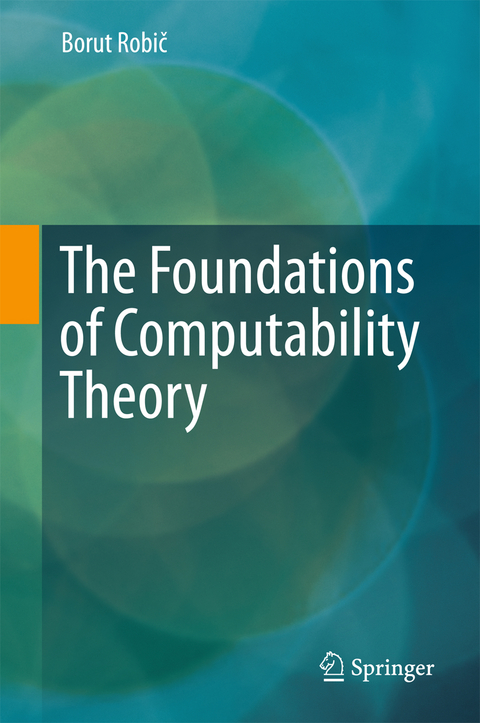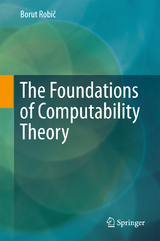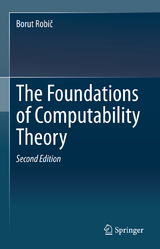The Foundations of Computability Theory
Springer Berlin (Verlag)
9783662448076 (ISBN)
- Titel erscheint in neuer Auflage
- Artikel merken
This is a gentle introduction from the origins of computability theory up to current research, and it will be of value as a textbook and guide for advanced undergraduate and graduate students and researchers in the domains of computability theory and theoretical computer science.
Prof. Borut Robic received his Ph.D. in Computer Science from the University of Ljubljana in 1993. He is a member of the Faculty of Computer and Information Science of the University of Ljubljana where he leads the Laboratory for Algorithms and Data Structures. He has had guest professorships, fellowships and collaborations with the University of Cambridge, the University of Augsburg, the University of Grenoble, and the Jozef Stefan Institute in Ljubljana. His research interests and teaching experience address algorithms; computability and computational complexity theory; parallel, distributed and grid computing; operating systems; and processor architectures. Prof. Robic coauthored the book "Processor Architecture: From Dataflow to Superscalar and Beyond" (Springer 1999).
Introduction.- The Foundational Crisis of Mathematics.- Formalism.- Hilbert's Attempt at Recovery.- The Quest for a Formalization.- The Turing Machine.- The First Basic Results.- Incomputable Problems.- Methods of Proving the Incomputability.- Computation with External Help.- Degrees of Unsolvability.- The Turing Hierarchy of Unsolvability.- The Class D of Degrees of Unsolvability.- C.E. Degrees and the Priority Method.- The Arithmetical Hierarchy.- Further Reading.- App. A, Mathematical Background.- References.- Index.
"The book incorporates many historical, philosophical, and practical concerns closely related to the definitions and core results of the subject. In addition, the book covers enough ground to be able to discuss the finite injury priority method. ... The tone is friendly and accessible, and a reader can learn some of the fundamental aspects of computability theory and its history without getting bogged down in technical details." (Joseph R. Mileti, Mathematical Reviews, September, 2016)
"For the prepared, this is a wonderful blending of history and philosophy, foundations and computation, math and the mystery of the incomplete, undecidable, unknowable, incomputable. ... a willing reader will be happy." (Benjamin Wells, ACM Computing Reviews, April, 2016)
"The main purpose of this book is to provide the reader with a clear and deep understanding of the foundations of computability theory. This goal is fully achieved, because the book is well-written and its reading is very pleasant. ... It is a good textbook for undergraduate or beginning graduate students in computer science or mathematics, and I suggest to use it." (Patrizio Cintioli, zbMATH 1339.03001, 2016)
| Erscheint lt. Verlag | 14.9.2015 |
|---|---|
| Zusatzinfo | XX, 331 p. 109 illus. |
| Verlagsort | Berlin |
| Sprache | englisch |
| Maße | 155 x 235 mm |
| Gewicht | 661 g |
| Themenwelt | Mathematik / Informatik ► Informatik ► Theorie / Studium |
| Mathematik / Informatik ► Mathematik ► Analysis | |
| Schlagworte | algorithms • Computability Theory • Models of Computation • Oracles • relative computability • Turing Machine |
| ISBN-13 | 9783662448076 / 9783662448076 |
| Zustand | Neuware |
| Informationen gemäß Produktsicherheitsverordnung (GPSR) | |
| Haben Sie eine Frage zum Produkt? |
aus dem Bereich





